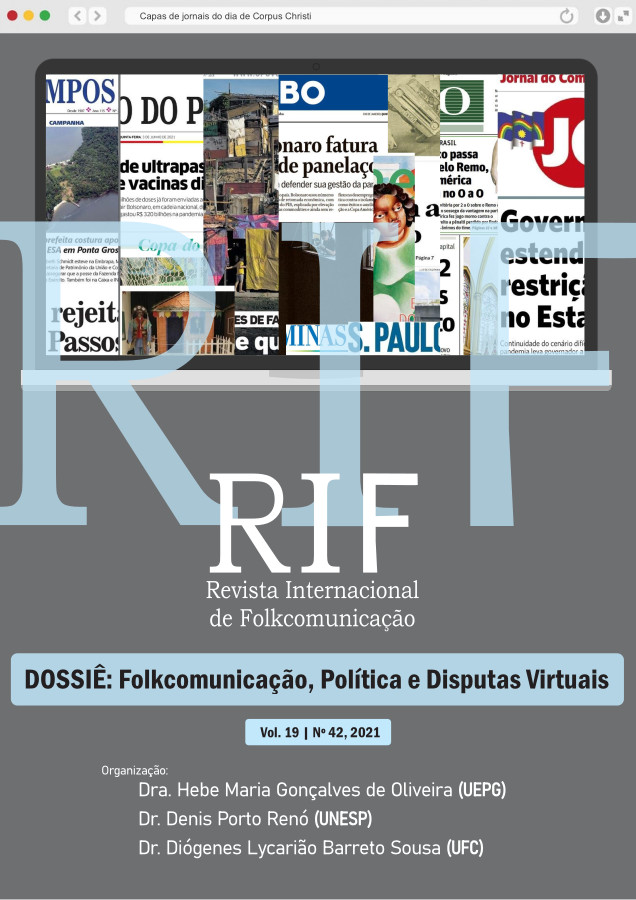Street Carnival in dispute in Santa Cruz do Sul /RS
DOI:
https://doi.org/10.5212/RIF.v.19.i42.0005Abstract
Carnival is part of popular culture in Brazil. However, in some regions of the country, this party is not given as much prominence as in others. In the municipality of Santa Cruz do Sul, in Vale do Rio Pardo/RS, the traditional street carnival, with samba schools and blocks, is the subject of disputes between carnival clubs, the government, and the private sector. This article discusses these disputes through the analysis of the two street carnivals that take place in town: the one known as Descida da Júlio, which initially emerges as an act of resistance to changes in the traditional street carnival proposed by the local government; and the one known as Bailinho de Carnaval da Borges, the result of an innovative initiative of local business owners. These two alternatives are analyzed as a means to discuss tensions in the cultural context, through the main national popular festival, having as background matters related to identity and the right to the city. This article follows the theory of cultural studies, in dialogue with the literature on urban and regional development. It is based on literature review and document analysis. The results indicate existing social fissures in the municipality and different society projects. Carnival;. Identity; Popular cultures; Right to the city.
Downloads
Published
How to Cite
Issue
Section
License

Este obra está licenciado com uma Licença Creative Commons Atribuição 4.0 Internacional.
Os autores são responsáveis, em qualquer que seja o formato do texto, pelas opiniões expressas ou indiretas presentes em seus respectivos trabalhos, não endossáveis pelo Conselho Editorial e pelos editores da Revista, bem como pela autenticidade do trabalho. Ao publicar trabalhos na Revista Internacional de Folkcomunicação, os autores cedem automaticamente os direitos autorais à publicação para veiculação das produções acadêmicas, sem ônus para a Revista. Os autores detêm os direitos autorais do texto para o caso de publicações posteriores e concedem à Revista Internacional de Folkcomunicação o direito de primeira publicação, com o trabalho simultaneamente licenciado sob a Creative Commons Attribution License, que permite o compartilhamento do trabalho com reconhecimento da autoria e publicação inicial nesta Revista. Por serem publicados em revista de acesso livre, os artigos são de uso gratuito, com atribuições próprias, em atividades educacionais e não-comerciais, sendo permitida a publicação simultânea em repositórios institucionais.































